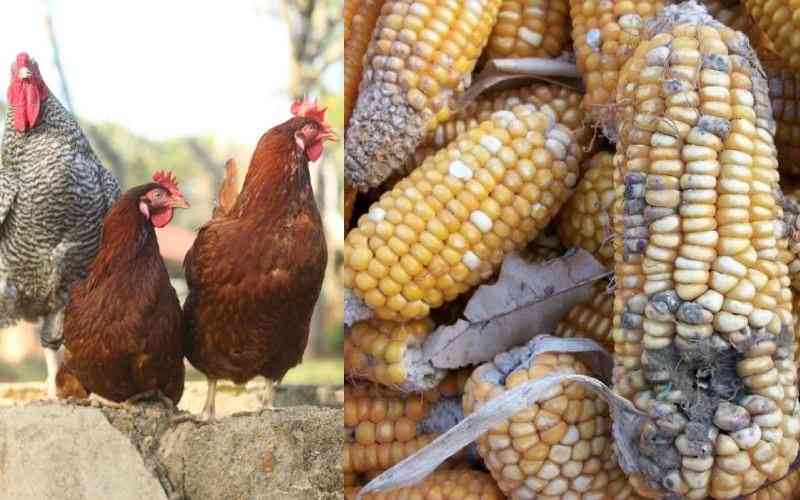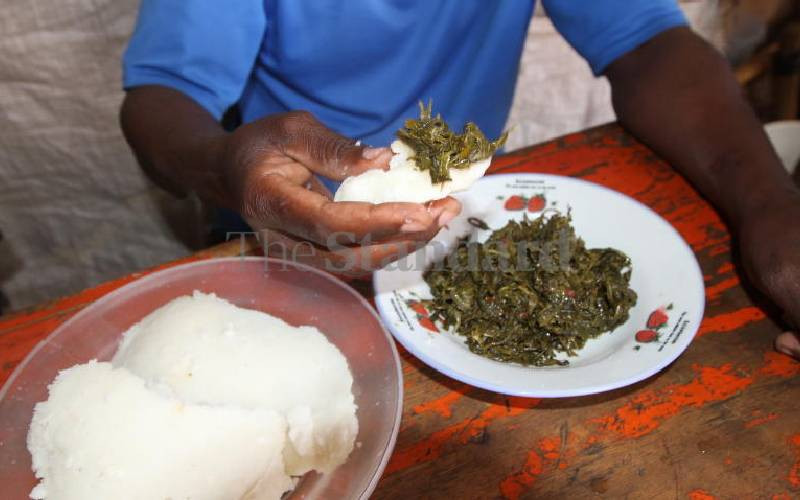
Maize farmers can now breathe easy after the Government approved usage of a bio-control product meant to fight aflatoxin-producing fungi.
Aflasafe KE01 is capable of suppressing the naturally occurring mould. The mould destroys up to 40 per cent of Kenya's annual grain production.
Kenya Agricultural and Livestock Research Organisation (Kalro) Director General Eliud Kireger said AlfasafeKE01 had been approved by all relevant Government regulating bodies after meeting stringent standards of safety and efficacy.
In a statement, he said: "Now that this bio-control product is fully approved for use after meeting stringent standards of safety and efficacy, we expect that its rapid adoption will help us deal with the recurrent and vexing aflatoxin problem, and make our maize safe to eat and trade."
Aflotoxin is produced by a fungus scientifically known as Aspergillus flavus, as a result of poor drying and storage of the grain following heavy rainfall before harvest time. Aflatoxin may be harmful to animals if ingested from contaminated maize.
It has been linked to liver cancer and suppressing immunity and stunted growth in children.
Already, a Sh66 million laboratory to develop Aflasafe KE01 is being constructed at the Kalro Katumani office in Machakos County.
"With the registration of this innovative, cost-effective technology to control aflatoxin, and the ongoing construction of the modular plant at Kalro Katumani, Kenya is now well on its way to securing the food, health, and income of millions of its farmers and traders," Dr Kireger said.
Charity Kawira, the Kalro scientist who discovered Alfasafe KE01, said it had demonstrated high efficacy of up to 98 per cent in the reduction of aflatoxin levels in maize and has demonstrated its ability to maintain low or no contamination both at pre and post-harvest. She said farmers will broadcast it during flowering stage, which is expected to arrest the spread of the fungus.
It will be broadcast by hand at the rate of 10kg/ha, two to three weeks before the flowering stage of maize to prevent the aflatoxin- producing fungus from contaminating the crop.
The Agriculture ministry said more than 200 people have died due to aflatoxin while more than 155,000 bags, about 6,000 acres of maize worth Sh465 million, were affected by aflatoxin since 2009.
Stay informed. Subscribe to our newsletter
 The Standard Group Plc is a
multi-media organization with investments in media platforms spanning newspaper
print operations, television, radio broadcasting, digital and online services. The
Standard Group is recognized as a leading multi-media house in Kenya with a key
influence in matters of national and international interest.
The Standard Group Plc is a
multi-media organization with investments in media platforms spanning newspaper
print operations, television, radio broadcasting, digital and online services. The
Standard Group is recognized as a leading multi-media house in Kenya with a key
influence in matters of national and international interest.
 The Standard Group Plc is a
multi-media organization with investments in media platforms spanning newspaper
print operations, television, radio broadcasting, digital and online services. The
Standard Group is recognized as a leading multi-media house in Kenya with a key
influence in matters of national and international interest.
The Standard Group Plc is a
multi-media organization with investments in media platforms spanning newspaper
print operations, television, radio broadcasting, digital and online services. The
Standard Group is recognized as a leading multi-media house in Kenya with a key
influence in matters of national and international interest.









